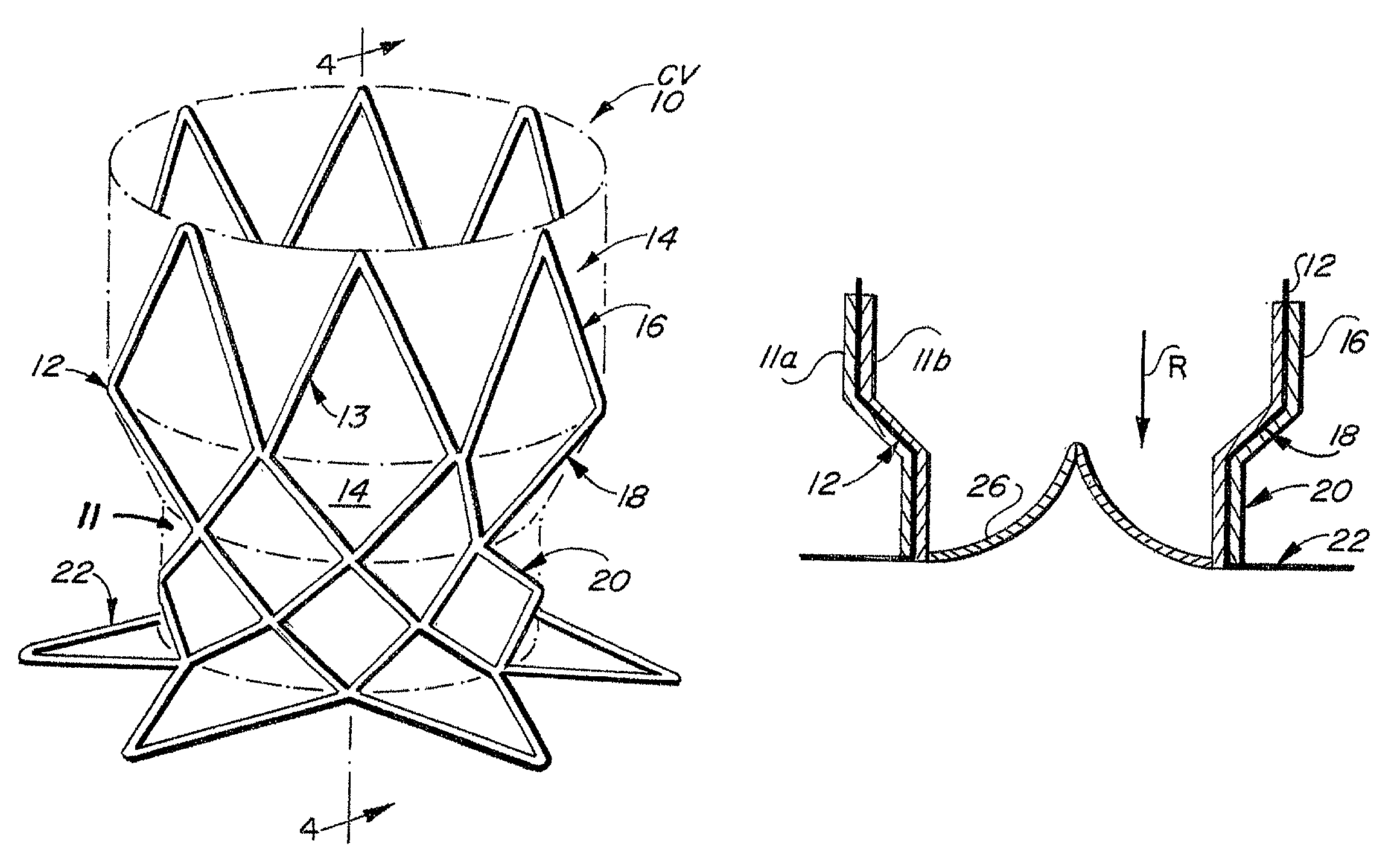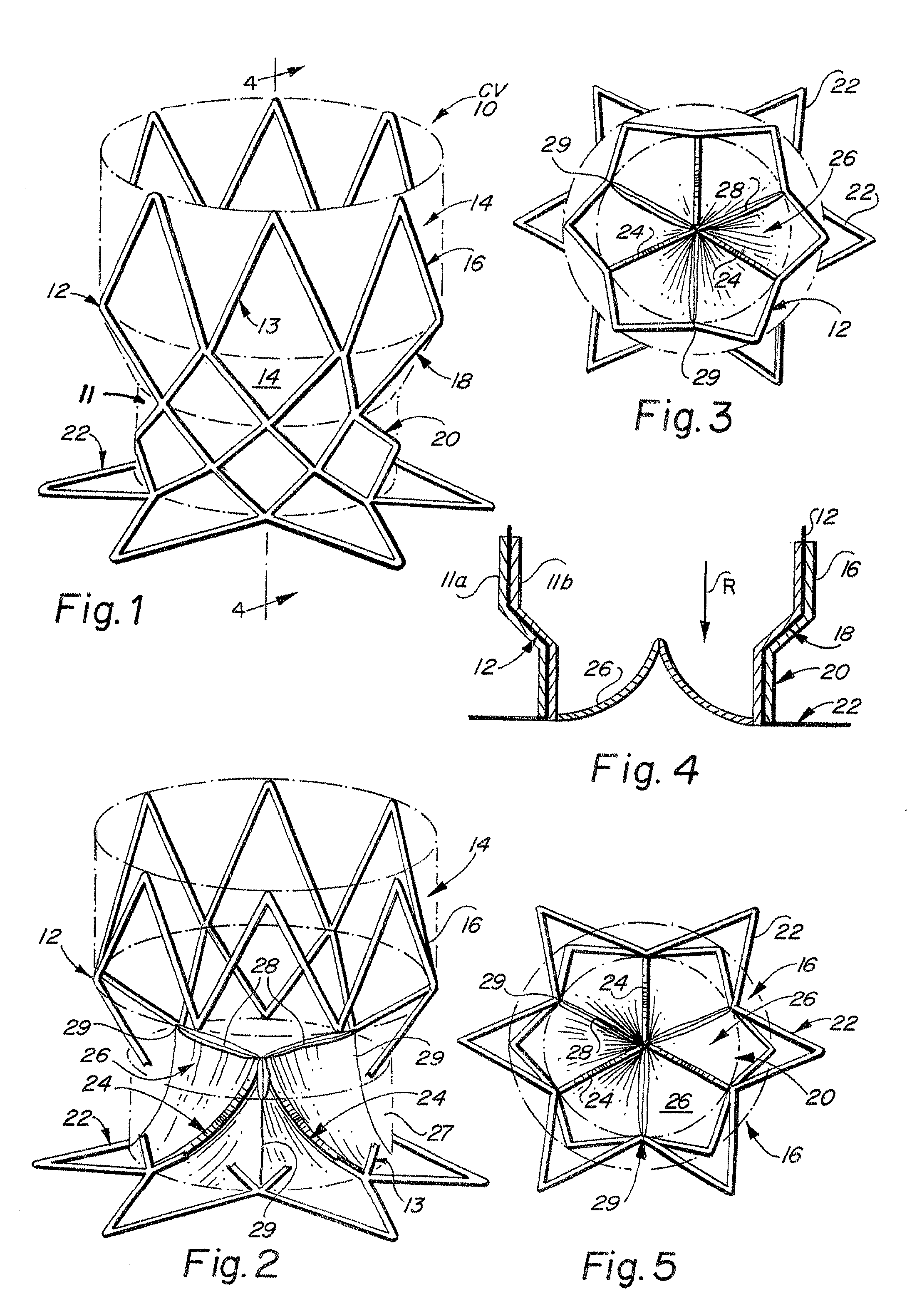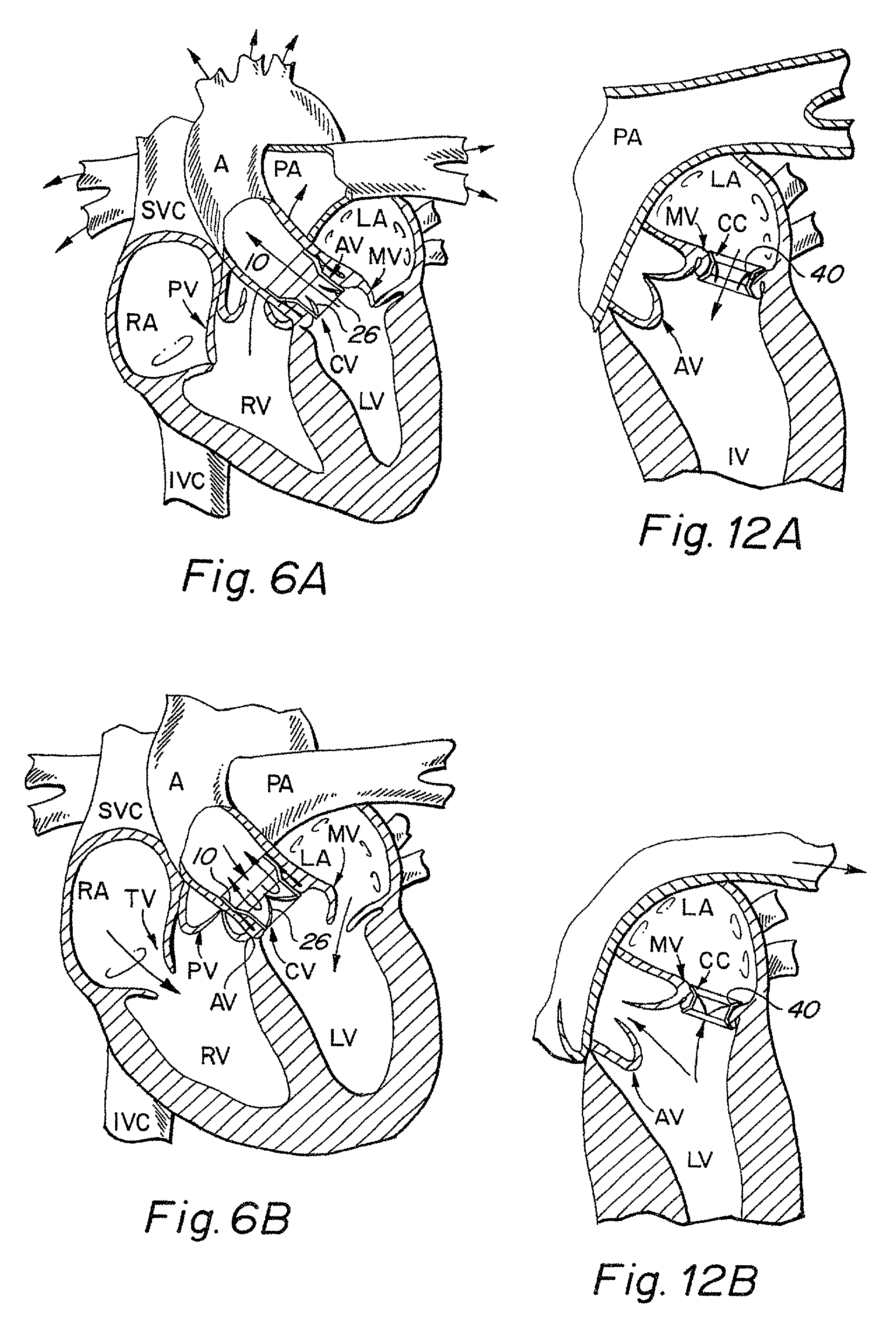Valvular prostheses having metal or pseudometallic construction and methods of manufacture
a technology of metal or pseudometallic construction and valve prosthesis, which is applied in the field of metal and pseudometallic films, can solve the problems of significant hemodynamic, delivery, fatigue and stability disadvantages of devices, and clinically ineffective minimally invasive techniques. it can promote unimpeded migration and attachment, and improve film structur
- Summary
- Abstract
- Description
- Claims
- Application Information
AI Technical Summary
Benefits of technology
Problems solved by technology
Method used
Image
Examples
Embodiment Construction
[0070]The present invention consists generally of three preferred embodiments, each embodiment corresponding to a prosthetic stent valve configuration adapted for either heart chamber to blood vessel communication, chamber to chamber communication or vessel to vessel, or intravascular configuration. Certain elements are common to each of the preferred embodiments of the invention, specifically, each embodiment includes a stent body member which defines a central annular opening along the longitudinal axis of the stent body member, a graft member which covers at least a portion of the stent body member along either the luminal or abluminal surfaces of the stent body member, at least one biasing arm is provided and projects from the stent body member and into the central annular opening of the stent body member, and at least one valve flap member which is coupled to each biasing arm such that the biasing arm biases the valve flap member to occlude the central annular opening of the st...
PUM
| Property | Measurement | Unit |
|---|---|---|
| grain sizes | aaaaa | aaaaa |
| deposition rates | aaaaa | aaaaa |
| deposition rates | aaaaa | aaaaa |
Abstract
Description
Claims
Application Information
 Login to View More
Login to View More - R&D
- Intellectual Property
- Life Sciences
- Materials
- Tech Scout
- Unparalleled Data Quality
- Higher Quality Content
- 60% Fewer Hallucinations
Browse by: Latest US Patents, China's latest patents, Technical Efficacy Thesaurus, Application Domain, Technology Topic, Popular Technical Reports.
© 2025 PatSnap. All rights reserved.Legal|Privacy policy|Modern Slavery Act Transparency Statement|Sitemap|About US| Contact US: help@patsnap.com



